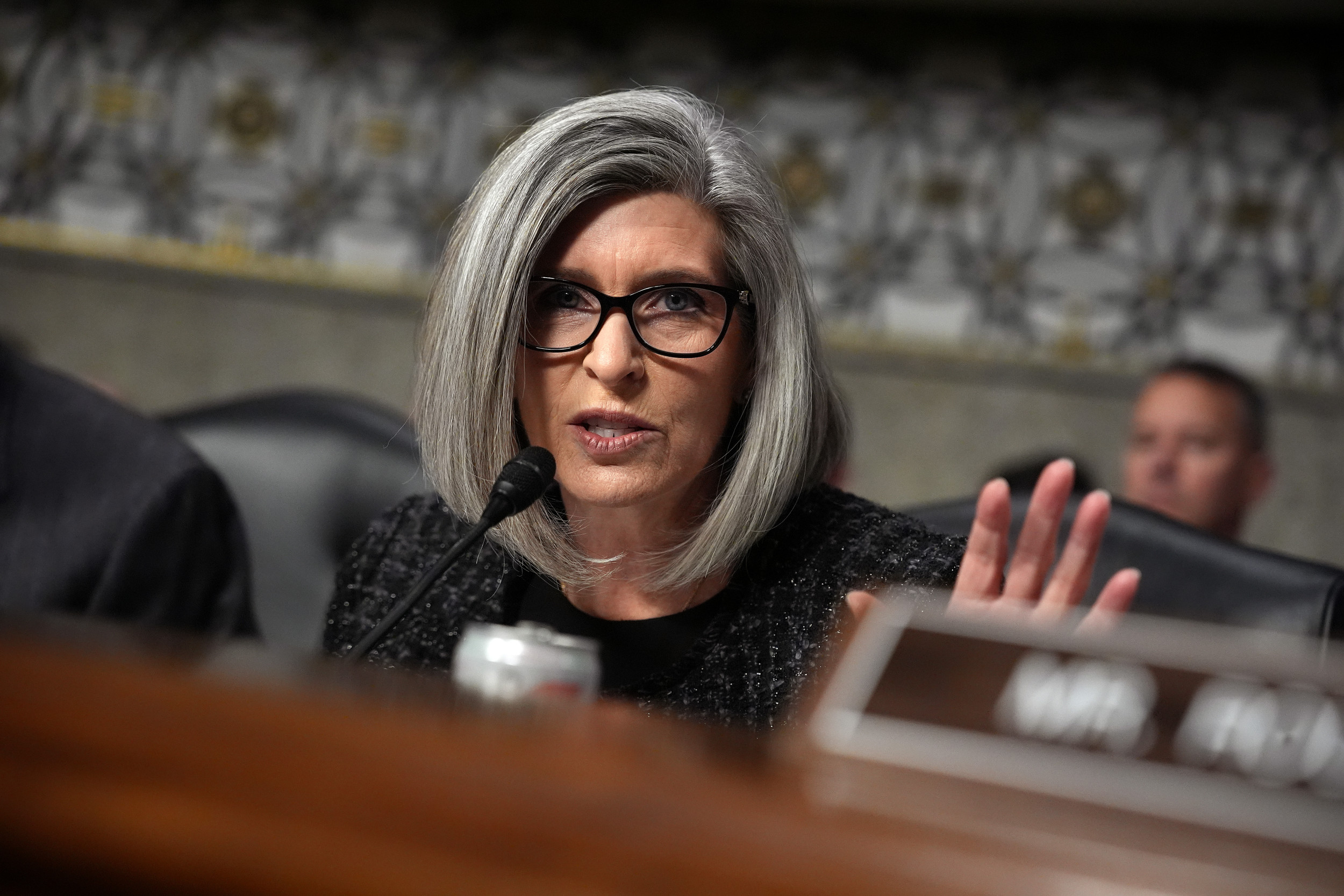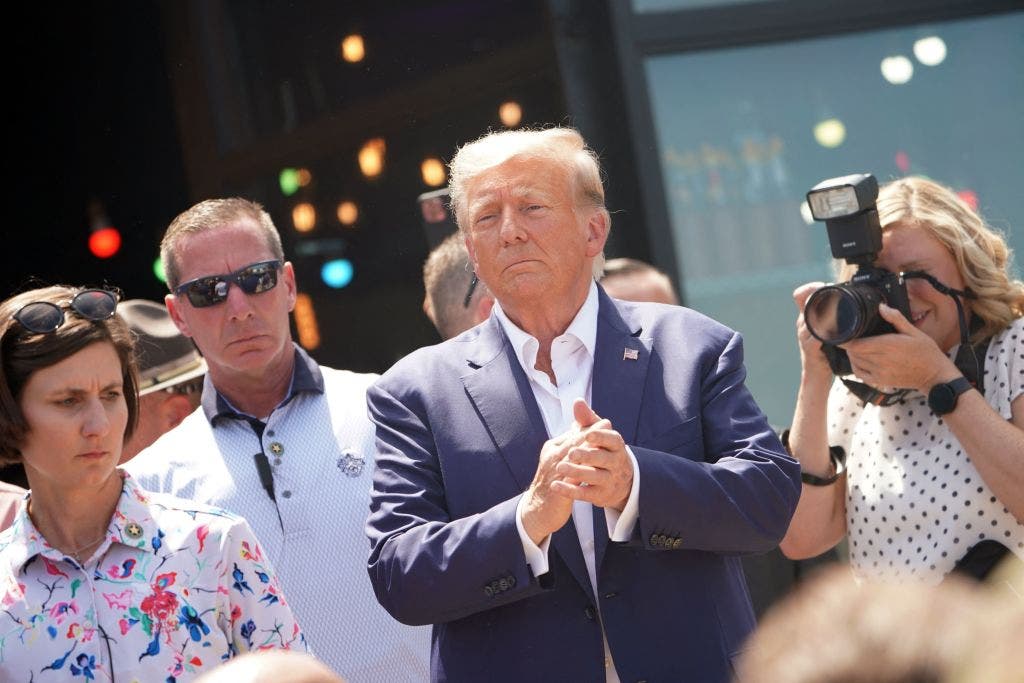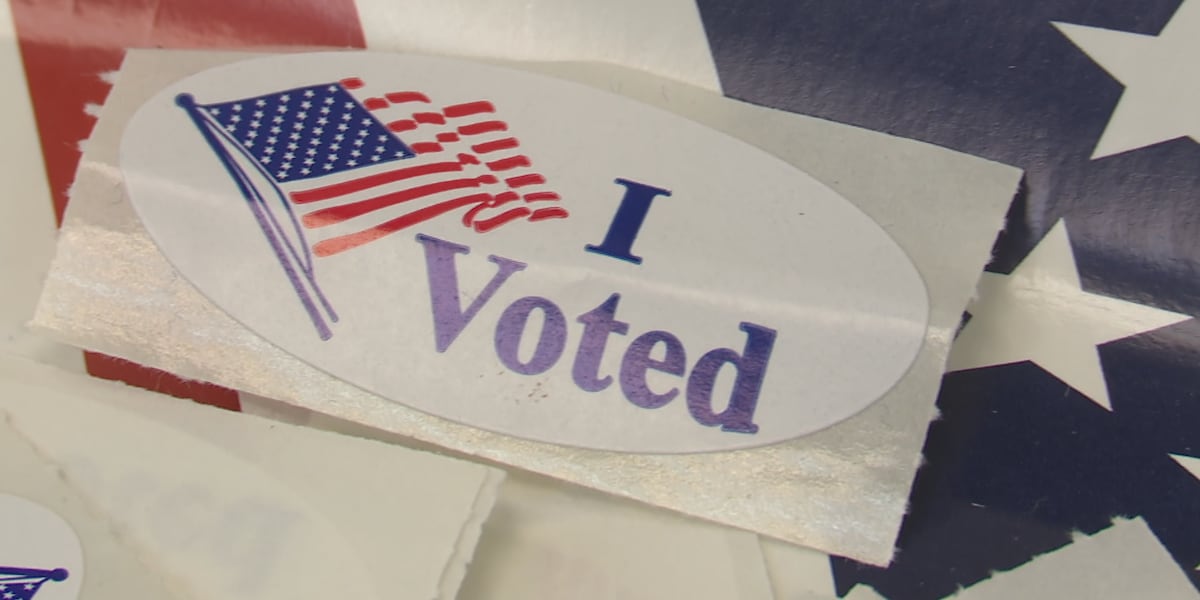Iowa Senator Joni Ernst, a Republican, trailed Democratic challenger Nathan Sage but held a lead against other potential Democratic candidates in a new poll of the 2026 Senate race.
Newsweek reached out to the Ernst and Sage campaigns for comment via email.
Why It Matters
Democrats’ chances of retaking the Senate in 2026 hinge on their ability to make competitive races in states President Donald Trump won by double digits in the 2024 presidential election.
GOP-held seats in Maine, which Trump lost, and North Carolina, which he won by only three points, are Democrats’ most likely targets. But beyond those two states, there are no obvious opportunities to flip a Senate seat in the midterms. This means Democrats will have to compete in states like Alaska, Florida, Iowa, Ohio or Texas to win control of the Senate.
While other polling on Iowa is not public, this early poll gives a potential look at how competitive the race could become. However, experts cautioned that the poll is not definitive, and Iowa GOP Chairman Jeff Kaufmann described it as “laughable” in a statement to Newsweek.
Andrew Harnik/Getty Images
What To Know
The Data for Progress poll asked Iowa voters who they would support in hypothetical 2026 matchups. It surveyed 779 likely voters from May 7 to May 12, 2025, with a margin of error of plus or minus four percentage points.
Ernst led each challenger by five to six points in initial matchups, with 10 percent of respondents saying they were undecided, the pollster found. But when pollsters read biographies of Democratic candidates, Sage established a slight lead over Ernst.
The poll found Sage with a two-point lead over Ernst (47 percent to 45 percent) after his biography was read.
Ernst fared better against other potential Democratic candidates.
Jackie Norris, chair of the Des Moines Public Schools Board, trailed Ernst by six points (44 percent to 50 percent). State Representative J.D. Scholten trailed the incumbent senator by six points (43 percent to 49 percent), while state Senator Zach Wahls trailed by 10 points (42 percent to 52 percent).
Only Sage has formally announced a Senate run so far.
Rachel Paine Caufield, a professor and co-chair of Drake University’s department of political science, told Newsweek that the poll does not say anything “definitive” about the race, and there is a history of polls overestimating Democrats in Iowa.
Sage’s lead could be an “artifact of sampling,” she said.
Still, she said the race could become competitive ahead of next November.
While Ernst has factors working in her favor, such as incumbency and the support of the state GOP, the fact that it is a Trump midterm could bolster Democrats. Caufield said the race will likely be one of the most expensive Senate races in the country.
“Democrats are energized. Iowa Democrats are frustrated and are really looking to mobilize to push back against Donald Trump and reclaim at least one house of Congress, so you might see renewed energy on Democratic side,” she said.
Sage may bring a “non-Washington sensibility” that could appeal to voters on the campaign trail, Caufield said. Ernst has indicated she plans to run again but has not formally launched her campaign. Caufield added that if Ernst changes her mind, that could also be a key factor in how competitive this race becomes.
Iowa could be an uphill climb for Democrats.
Although it voted for former President Barack Obama twice, President Donald Trump easily carried it in each of his three presidential bids as the state quickly shifted toward Republicans. Trump won the state by more than 13 points last November.
The state has shifted rightward for several reasons, according to Caufield. In addition to national trends of white working-class voters moving toward the GOP, the party has not prioritized issues that “animate politics in places like Iowa.”
“There are a lot of people who feel as though the Democratic party isn’t speaking for them, doesn’t care about them and doesn’t perhaps even like them very much,” she said. “There’s a national brand problem for Democrats. I also think there’s a state problem for Democrats.”
Timothy Hagle, a professor of political science at the University of Iowa, told Newsweek that the pollster “is on the political left” and doesn’t indicate demographic weights.
“All that said, it’s sometimes good to have early indications of how a candidate or officeholder is doing,” he said. “In 2024, we saw some Republican incumbents in Iowa challenged from the right. That can end up hurting a candidate in the general election if the primary opponent can damage or weaken the incumbent, or if the voters of the incumbent’s party decide to support their party’s candidate.”
Iowans, however, tend to like incumbents, he said.
Republicans’ voter registration advantage also makes it “harder for Democrats to win, but not impossible.” They would need to find “serious candidates and win over” unaffiliated voters mainly concerned with issues like the economy and health care, he said.
“As for Sage, his military service is good, this radio experience suggests he’ll be able to communicate well, and his experience with businesses means he’ll likely be able to talk about the kitchen table issues. Even so, that likely won’t be enough to overcome Ernst’s experience and incumbency. He’s a relative unknown with no elective experience which will make it very hard to be competitive against Ernst,” he said.
Ernst won reelection by more than six points in 2020. She outperformed many polls that showed Democrat Theresa Greenfield with a lead in the final stretch before Election Day.
Forecasters do not view Iowa’s Senate race as particularly competitive. The Cook Political Report rates it as Solid Republican, and Sabato’s Crystal Ball rates it as Safe Republican.
What People Are Saying
Iowa GOP Chairman Jeff Kaufmann told Newsweek: “More laughable than the last bogus poll trying to sell a Democrat win in Iowa. Ask Ann Selzer how her skewed results actually turned out for Kamala Harris.”
Iowa Democratic Senate candidate Nathan Sage told The Gazette of Cedar Rapids: “I’m out here trying to bring a little bit more of a voice of working-class individuals to Washington and fight for them to have a better life, instead of trying to survive every day. Trying to actually make Iowans thrive.”
Nick Puglia, National Republican Senatorial Committee spokesperson, told The Hill: “It doesn’t matter which radical Democrat gets nominated in their messy primary because Iowans are going to re-elect Senator Joni Ernst to keep fighting for them in 2026.”
What Happens Next
Other candidates could announce runs in the coming year or so, when more polls will indicate how competitive the race could be. Iowa’s primary is June 2, 2026, and the general election is November 3, 2026.
Democrats are eyeing Maine and North Carolina as their top priority, in addition to defending seats in Georgia and Michigan, where Senator Gary Peters is retiring. Polls have suggested the Senate race in Texas could potentially become competitive, though the state has proven elusive to Democrats.
Update 5/23/25, 1:55 p.m. ET: This article was updated with additional information.















